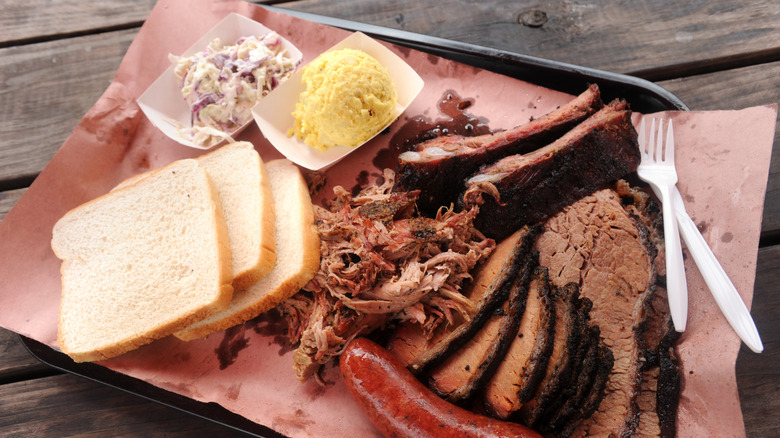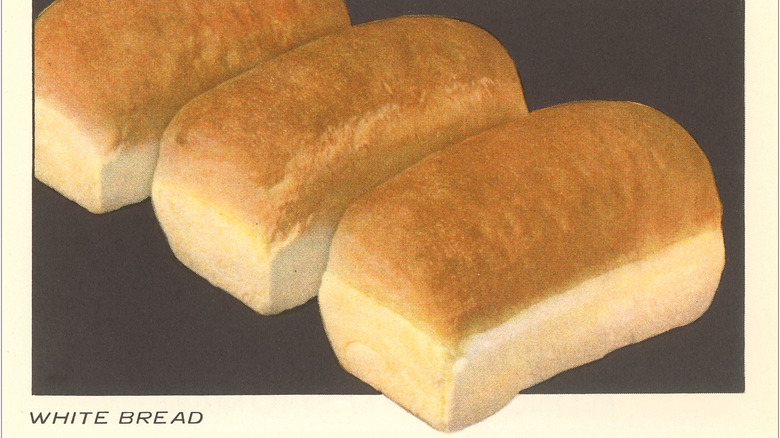The Lore Behind Why White Bread Is Served With Southern Barbecue
When digging into a classic Southern barbecue plate, there's a high chance you'll find a few unassuming slices of white bread nestled alongside the smoky meats. It might seem random to some, but this pairing has deep roots, reaching back to early Texas barbecue joints in the 19th century. When meat markets began adding barbecue to their offerings, white bread stepped in as the perfect, low-cost sidekick acting as a "landing zone" for barbecue. In other words, it's effectively an edible napkin, soaking up every last bit of sauce and juice left behind by a juicy brisket or smoked ribs. The last thing you want is to lose a drop of that flavor, and white bread ensures nothing goes to waste.
It didn't hurt that white bread, especially in the era of mass production, is also pretty cheap. There's even a way of consuming barbecue with this bread known to some as the "foldee," a method of wrapping a slice of meat, pickles, and onion in a folded piece of bread. Today, of course, those humbles slices have also become part of the widely-beloved tradition and lore of Southern barbecue.
White bread's true purpose in barbecue
In Texas, where this tradition runs especially deep, locals know white bread is the ideal blank canvas that lets the rich, smoky notes of the meat shine through without competition. Many further claim that only white bread can deliver the right texture for sopping up leftovers without overpowering the meal's carefully crafted flavor and texture.
White bread's role in Southern barbecue is proof that sometimes the simplest things can help to bring in the most flavor, grounding the meal in tradition and taste with every slice. It's evidence that the South brings some of the most beloved American flavors to the table, including the complexities of good barbecue, paired with the practicalities and simple, comforting vibes of a slice of bread. So, the next time you're savoring a plate of Southern barbecue, remember that slice isn't just filler — instead, it's vital a piece of barbecue's longstanding culinary history.

